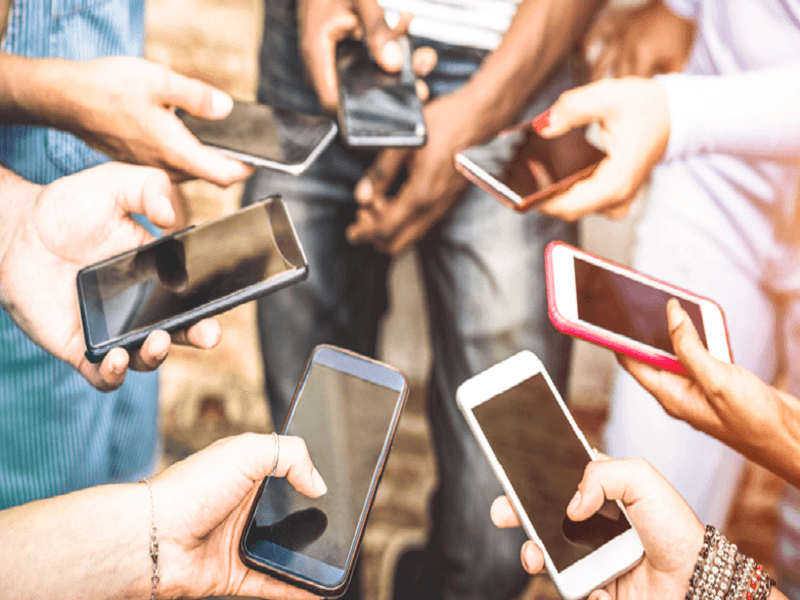The businessman received that video from the number of the crown prince of Saudi Arabia, Mohamed bin Salmán. That doesn’t mean the video was sent from your phone, as the number can be impersonated. Everything indicates that, when that video was downloaded, Bezos opened a door for cybercriminals and they began to spy on him digitally.
If a person of reference in the world of technology falls into the trap of hackers, anyone can run the same risk. However, it is true that figures like Bezos’s are much more attractive since their devices can contain sensitive and interesting information. In spite of everything, it is convenient to acquire the basic habits to avoid that we take a displeasure. Transmitting these digital customs is one of the main objectives of the International Day of the Safe Internet , which is celebrated every February 11.
The most common attacks According to the annual survey Web surfers, carried out by the Association for Media Research, 92% of users access the internet through their smartphone . This trend does not go unnoticed by cybercriminals and more and more they venture to enter mobile devices through different techniques such as the following:
Table of Contents
Mobile devices through different Techniques:
- Ransomware. Cyber criminals hijack information and the user must pay a ransom to recover their data.
- Phising. Through identity theft processes, hackers trick the user into providing them with sensitive information. For example, be careful with emails that request passwords or bank details.
- Spam. These are spam messages that announce to the user that they have won a prize. However, this type of message usually involves a scam.
According to the Monthly Security Barometer , prepared by ESET, phishing was the main threat of 2019 on all types of devices. One of the most prominent attacks was the identity theft suffered by Paypal , with which hackers wanted to extract information from consumers’ credit cards. Regarding the world of smartphones , the Strandogg vulnerability was one of the most damaging to these smartphones: it affected Android and it is suspected that it was being used to spy on users. Specifically, it allowed malicious apps to impersonate apps. verified and thus steal access credentials to certain services.
Tips to be surf Internet safe:
When a smartphone is infected, it can present various symptoms: start to perform poorly, include too much advertising on web pages or receive messages from strangers. To protect users from this type of situation, the National Cryptologic Center (CCN) presents a series of tips:
- Screen lock. The first step is for the user to prevent someone from accessing their data if their phone is stolen. For this, it is simply necessary to configure an access code or digital fingerprint.
- Information encryption. By encrypting the data, other people are prevented from reading the stored content. To activate this option on Android, you have to go to Settings and Security. In iOS this functionality is activated by default once the unlock code has been established.
- Update daily. Keeping device updates up-to-date is crucial, as these typically improve security systems automatically.
- Watch out for USB ports. It is recommended not to connect the mobile to unknown USB ports or accept access requests from untrusted computers.
- Disconnection of interfaces. It is preferable to disconnect connections such as NFC, bluetooth or WiFi if they are not going to be used.
- Only official apps . Since most of the attacks arise when downloading unreliable apps , it is recommended to access these services only through official spaces such as Google Play and Apple Store .
- Valuation of permits. Many times apps request a large number of permissions, but before accepting them it is better to stop and think about whether it is absolutely necessary to accept each one of them.
- Use of the HTTPS protocol. If you can, you must use the HTTPS formula (https: // …) and reject messages that report a digital certificate error on the web pages.
- Backups. Making regular copies of the data will help protect and preserve all the stored information.
It is clear that smartphones and tablets have become essential companions in today’s life. They help maintain contact with close people, access information anytime, anywhere, and consult the best routes to get around the city, among other things. Therefore, it is important that everyone protects their smartphone in a precisely, intelligent way.


![[pii_pn_814c1d9f27d26acc] error code](https://thetechupdates.com/wp-content/uploads/2020/12/pii_pn_814c1d9f27d26acc-error-code.jpg)

